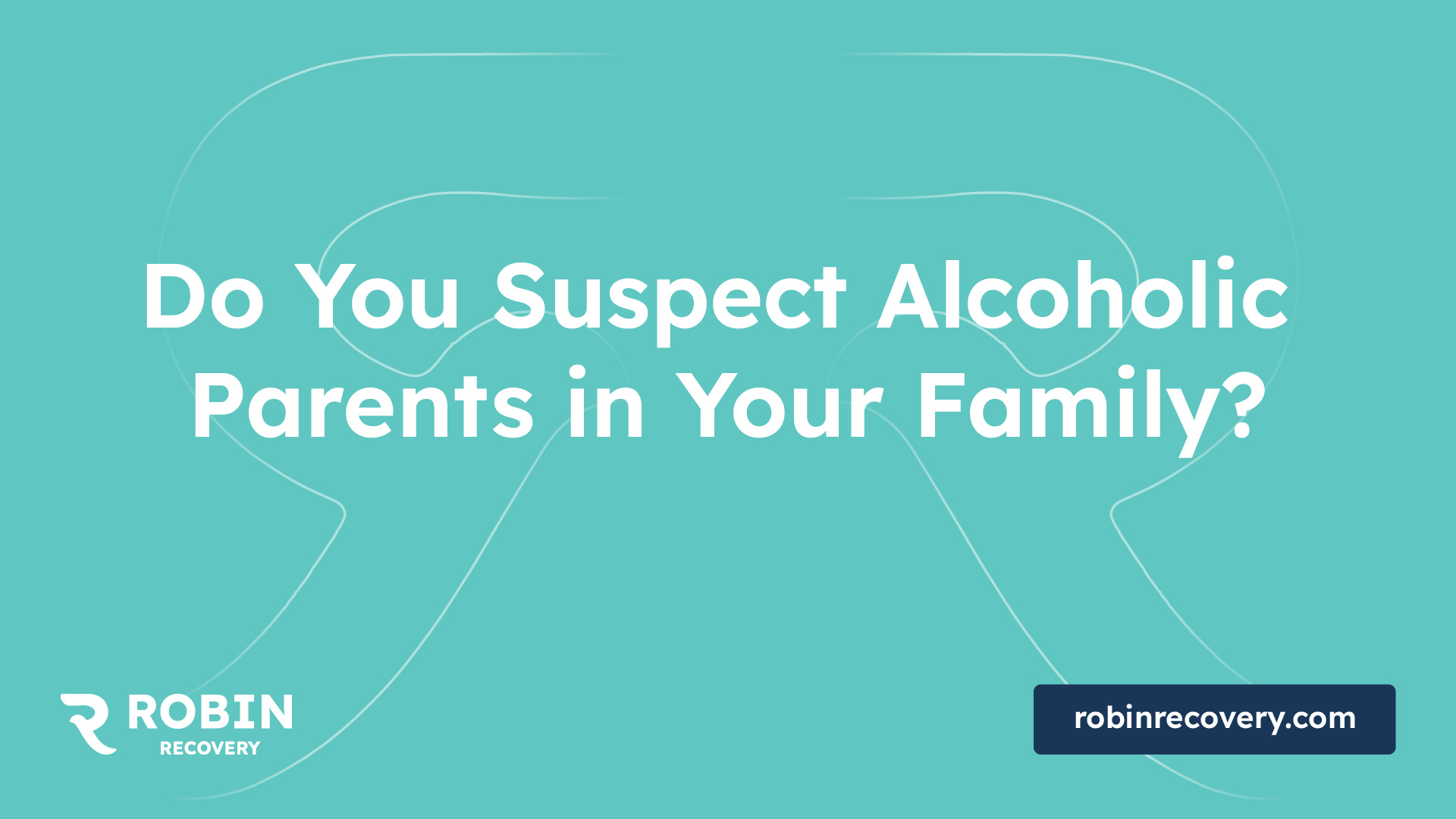Do You Suspect Alcoholic Parents in Your Family?

Understanding Alcohol Use Disorder (AUD)
Alcohol Use Disorder (AUD) encompasses a range of drinking problems, from mild to severe. It can have widespread impacts on health, relationships, and daily functioning. Recognizing the implications of AUD, particularly concerning cancer risk and mental health, is vital for those wondering, "do I have alcoholic parents?" Understanding these factors can help raise awareness and promote healthier environments.

Alcohol-Related Cancer Risk
Alcohol consumption is linked to a heightened risk of various cancers. Even consuming low levels of alcohol can lead to a modest increase in the likelihood of certain types of cancer. In 2009, approximately 3.5% of cancer deaths in the United States, equating to around 19,500 fatalities, were attributed to alcohol-related causes [1].
Type of CancerIncreased Risk Due to AlcoholBreast CancerModerate riskLiver CancerHigh riskColorectal CancerModerate to high risk
Recognizing these risks is crucial, especially for individuals with a family history of alcohol-related issues.
Impact of Alcohol on Mental Health
The effects of alcoholism extend beyond physical health; they can severely impact mental health. Alcohol dependence is associated with a range of challenges, including physical ailments, behavioral problems, and learning disabilities. Prolonged alcohol use can lead to brain damage, increased susceptibility to mental health disorders, and cardiovascular diseases [2].
The mental health implications of AUD can manifest in various ways, including anxiety, depression, and an increased risk of suicidal thoughts. Understanding these connections can aid those who suspect they may have alcoholic parents in recognizing signs of potential issues within the family unit.
Mental Health ImpactDescriptionAnxietyIncreased feelings of nervousness and fearDepressionPersistent sadness and a lack of interestCognitive ImpairmentDifficulty concentrating and memory issues
Knowing about the risks associated with alcohol can guide individuals in discussing these topics within the family setting. Conversations surrounding issues pertaining to alcohol use are crucial in recognizing patterns that may indicate dependence or abuse.
Initiating Conversations about Alcohol Use
Having open conversations about alcohol use can be challenging, especially for those who may suspect that they have alcoholic parents. Understanding how to initiate these talks can help create a supportive environment.
Tips for Starting Conversations
Starting a conversation about alcohol use requires sensitivity and tact. Here are some helpful tips:
These strategies can create a more productive dialogue and increase the chance of a positive response.
Importance of Positive Communication
Effective communication can significantly impact how children perceive and engage with their parents regarding alcohol use. Research shows that teens value their parents' opinions and believe they should influence whether they drink alcohol [3]. Positive communication fosters healthier relationships between parents and teens, making it easier for them to discuss sensitive topics.
Studies indicate that adolescents who believe their parents would be upset if they drank are less likely to engage in underage drinking [3]. Creating an open and understanding atmosphere can help reinforce the importance of decision-making, stress management, and relationship building.
Parents who display warmth, encouragement, and appropriate discipline can promote a respectful environment where their children feel safe discussing their thoughts on alcohol. This approach encourages responsible behavior and decision-making regarding their own alcohol use.
By focusing on positive communication, individuals can initiate necessary conversations about alcohol in a supportive way, ultimately leading to a healthier family dynamic.
Parental Influence on Children's Alcohol Consumption
Parental attitudes and behaviors significantly affect children's views and interactions with alcohol. Understanding how parents can influence their child's relationship with alcohol is essential for fostering responsible habits.
Setting Examples and Boundaries
Parents play a crucial role in shaping children's attitudes towards alcohol. Setting a good example and discussing responsible alcohol consumption is vital in preventing alcohol-related harm [4]. Children often model their behaviors on their parents, so exhibiting responsible drinking habits can help instill similar behaviors in them.
To establish clear boundaries around alcohol use, parents should engage in discussions about the risks and consequences of drinking. Transparent communication about their expectations serves to inform children about what is acceptable behavior regarding alcohol. Research indicates that when parents provide guidance and express their viewpoint on drinking, their children are more likely to respect these boundaries [3].
Parenting PracticeImpact on ChildrenSetting a good exampleEncourages responsible behaviorOpen discussions about risksPromotes understanding and respect for boundariesClear expectations on alcohol useReduces likelihood of underage drinking
Parenting Styles and Teen Alcohol Use
The style in which parents raise their children has a considerable impact on their alcohol consumption. Teens raised with encouragement, warmth, and appropriate discipline tend to be more respectful of their parents' boundaries. Authoritative parenting, which balances support and discipline, is associated with teenagers who are less likely to engage in risky behaviors, including underage drinking.
Conversely, permissive attitudes toward alcohol, particularly combined with poor communication and unhealthy modeling, can lead teens to develop unhealthy relationships with alcohol. Parents who provide alcohol for parties or fail to communicate the dangers of underage drinking serve as significant risk factors for alcohol misuse.
By adopting a strategic parenting approach, including establishing clear expectations and discussing the consequences of alcohol use, parents can play a vital role in shaping their children's future relationships with alcohol. Understanding these dynamics can help those questioning, "do I have alcoholic parents?" better assess the influence of their upbringing on their current behaviors and attitudes toward alcohol.
Risks of Underage Drinking
Underage drinking poses significant risks not only to the individual consuming alcohol but also to their overall development and future prospects. It is crucial to understand the effects when discussing whether one may be impacted by an environment with potential alcohol-related issues.
Effects on Brain Development
Alcohol consumption during adolescence can interrupt brain development, leading to long-term consequences. The adolescent brain is still maturing, and alcohol can negatively affect this process, potentially resulting in:
To mitigate risks, children under 18 years of age are advised not to consume alcohol.
Effect of Alcohol on Brain DevelopmentDescriptionImpaired LearningDecreased ability to form memories and retain information.Behavioral ChangesIncreased likelihood of risky behaviors and poor decision-making.Cognitive DelaysPotential long-term cognitive impairments impacting social interactions and problem-solving skills.
Implications of Fetal Alcohol Spectrum Disorder (FASD)
Fetal Alcohol Spectrum Disorder (FASD) refers to a range of conditions caused by alcohol exposure during pregnancy. This can lead to a variety of lifelong implications, including:
FASD affects individuals' ability to thrive, impacting their social interactions and educational achievements. Early diagnosis and support can help manage symptoms, but prevention through abstaining from alcohol during pregnancy is critical [5].
Implications of FASDDescriptionPhysical DisabilitiesGrowth deficiencies and abnormal facial features.Mental and Behavioral ChallengesDifficulty with impulse control, attention deficits, and social interactions.Learning DisabilitiesChallenges in academics and comprehension.
Recognizing and discussing the risks of underage drinking can lead to better understanding among families. Parents play a significant role in guiding their children, and fostering open communication can lead to healthier attitudes towards alcohol. For more information about addressing alcohol-related issues in a family setting, consider reviewing national eating disorders awareness week or the difference between cbd vs thc for broader discussions around health and wellness.
Seeking Help for Alcohol Use Disorders
Addressing concerns regarding potential alcoholism in one's family, particularly in parents, can be challenging. Seeking help for Alcohol Use Disorder (AUD) is a crucial step for recovery. This section outlines how to assess AUD severity and explores treatment and recovery options.
Assessing AUD Severity
Health care professionals utilize criteria from the Diagnostic and Statistical Manual of Mental Disorders, Fifth Edition (DSM-5) to determine if a person has AUD and to assess its severity. This severity is categorized based on the number of criteria met according to symptoms. The categories are defined as follows:
Severity LevelCriteria MetMild2–3 criteriaModerate4–5 criteriaSevere6 or more criteria
This classification helps in understanding the level of intervention needed. Those diagnosed with severe AUD may require medical assistance to prevent alcohol withdrawal, which can be a serious health risk.
Treatment and Recovery Options
Effective treatment for AUD is multifaceted, considering it as a brain disorder that results from long-term alcohol misuse. Treatment options typically include behavioral therapies, mutual-support groups, and medications, all tailored to individual needs.
Early intervention is crucial and can significantly prevent relapse among those with AUD. By assessing the severity of the disorder and understanding available treatment options, individuals and families can take informed steps toward recovery. For more information on other aspects of addiction and mental health, visit our articles on common causes of over the counter drug abuse and what is talk therapy?.
Recognizing Alcoholism in Parents
Understanding whether parents may struggle with alcoholism is significant for children and adolescents. Recognizing patterns of behavior and their impact can be crucial in addressing any potential issues.
Impact on Children
The impact of parental alcoholism on children can be profound. Research indicates that children of alcoholics are four times more likely to become alcoholics themselves. Furthermore, about half of these children may develop issues related to alcohol consumption [7].
Children who grow up in environments where alcohol use is prevalent may face emotional and psychological challenges. These can include feelings of shame, guilt, and anxiety, which may affect their relationships and self-esteem. The following table outlines some common effects of parental alcoholism on children:
Effect on ChildrenDescriptionEmotional InstabilityIncreased anxiety and mood swingsBehavioral ProblemsHigher risk of engaging in risky behaviorsRelationship IssuesDifficulties in forming healthy attachmentsAcademic StrugglesLower performance in schoolIncreased Risk of Substance AbuseGreater likelihood of future alcohol misuse
Parents play a crucial role in shaping their children's attitudes towards alcohol. Setting a positive example and discussing responsible alcohol use can significantly mitigate alcohol-related risks [4].
Assessing Alcohol Consumption Patterns
To determine if parental drinking might be problematic, it's essential to assess consumption patterns. Parents should be honest with themselves about their drinking habits and consider if they might be concerning. Signs to observe may include:
Communication plays a key role in reducing risks. Studies show that adolescents who recognize their parents would disapprove of their drinking are less likely to engage in it themselves.
It is important for parents to foster open lines of dialogue regarding alcohol usage and set clear boundaries. Adolescents tend to listen to their parents on such matters, with about 80% believing parents should influence their drinking decisions [3]. By evaluating their own patterns of consumption and engaging in healthy conversations, parents can help protect their children from potential alcohol misuse.
References
[2]:
[3]:
[4]:
[5]:
[6]:
[7]:
